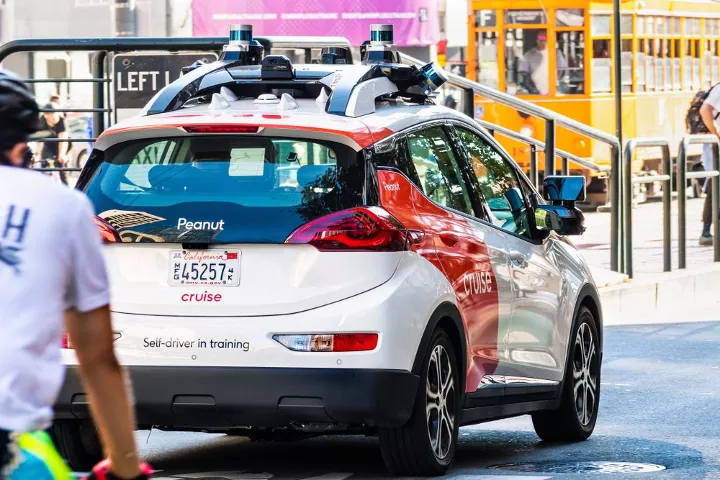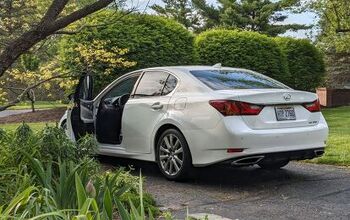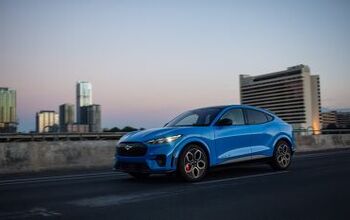U.S. Regulator Proposes Updated Rules for Autonomous Vehicles in Exchange for Data

The National Highway Traffic Safety Administration (NHTSA) proposed a new national program to update the regulations surrounding autonomous vehicles this week. Updated rules would presumably allow automakers to field more self-driving test vehicles on public roads than we’ve seen thus far in exchange for those companies sharing the data those cars collect with the government.
Due to the fact that any autonomous vehicle lacking human controls (e.g. steering wheels and pedals) have to be given exceptions from the Federal Motor Vehicle Safety Standards (FMVSS) to legally operate in populated areas, NHTSA leadership believes that having access to the data they’ve collected will be useful in informing decisions on how the rules could be changed. The claim is that the resulting information will help regulators update safety standards to incorporate self-driving vehicles. But it’s also going to be a privacy issue, as citizens have already expressed their dismay with automakers even considering sharing AV data with local authorities.
In 2021, the San Francisco Police Department reportedly asked Waymo and General Motors' Cruise to hand over footage obtained by autonomous test vehicles in the hope that they’d help solve crimes. The department allegedly even had training documents stating that autonomous vehicles collected a wealth of useful surveillance information that had been used in the past to help with investigations.
Civilians were already wondering whether some of the tech going into modern vehicles represented violations of their privacy. But now they have to ask themselves whether roping in the police directly violates their 4th Amendment rights. Unfortunately, the latest proposals from federal safety regulators will force the issue even further.
Based on the preexisting AV START Act, the updated rules would reportedly increase the cap on the number of self-driving vehicles companies could put onto the road — provided the federal government is given data in exchange. However, we don’t know exactly what that entails and likely won’t until a finalized draft is released this fall.
The new regulatory scheme will be called the ADS-Equipped Vehicle Safety, Transparency and Evaluation Program (AV STEP) and seems to target advanced driving aids in general based on the name alone.
Automotive News reported that numerous companies with autonomous test fleets have been asking the government for exemptions and are claiming that progress is being stifled by regulatory red tape.
For example, Ford withdrew a request this March that had gone unanswered since July 2021. Since 2022, General Motors has likewise been waiting for certification from the Department of Transportation to manufacture a small bus-like vehicle that will haul up to six people without a driver and there’s a pending request joint exemption request from Waymo and Aurora regarding self-driving trucks.
"This is a new and exciting opportunity for all of us," Ann Carlson, the acting administrator of the National Highway Traffic Safety Administration, told an audience of industry executives and transportation officials attending the Automated Road Transportation Symposium.
"We believe AV STEP is a way to open up a wealth of data and allow for deployment of [FMVSS] non-compliant vehicles," she continued, "where we can benefit from, learn from and enhance our research into automated-vehicle safety and performance."
Industry lobbyists appear to be welcoming the proposed changes.
From Automotive News:
The proposed AV STEP would not replace the exemption-request process but instead offers an alternate regulatory avenue to the road — one without the caps on the maximum allowable number of vehicles.
The Alliance for Automotive Innovation, the auto industry's main lobbying arm, welcomed Wednesday's development, saying it was an "important innovation policy development."
The advent of AV STEP could be a big help to General Motors, in particular. The automaker submitted an exemption request for its Cruise Origin robotaxi in February 2022, and has not yet received a decision from Department of Transportation officials.
NHTSA will provide GM with an answer "soon," Carlson said Wednesday.
Your author has previously questioned the effectiveness of today’s NHTSA by noting that the agency seems preoccupied with things like environmentalism and promoting novel technologies. There’s a wealth of information supporting the theory that many advanced driving aids actually diminish the skills of motorists. Installing large screens into every vehicle likewise presents a distraction for today’s drivers. Yet the NHTSA rarely discusses those issues in an earnest manner, despite the United States having seen an increase in automotive fatalities in recent years, and often elects to focus on highly specific examples or assess where specific driving aids stack up against the pack.
To be fair, determining exactly how distracting modern infotainment systems are is a monumental task. Evaluating every advanced driving system would be similarly daunting. But that’s also the NHTSA’s job and it seems worryingly eager to give manufacturers leeway while fretting over how to tweak the laws to accommodate the industry. There may be consideration given to doing so safely. But the scope is bizarrely narrow when it seems obvious that the ways in which modern vehicles are designed have not made for safer roadways.
Today’s automobiles are more crashworthy than their predecessors — meaning the cause of increased vehicle fatalities has to be attributed to worsening road conditions, increased substance abuse, disparities in vehicle mass, distracting infotainment systems, subpar advanced driving aids, or some combination therein.
Meanwhile, self-driving technology appears to be languishing a bit. A decade ago, automakers were promising to launch commercially viable autonomous vehicles by 2020. But we’re still seeing test vehicles running into buses, getting confused near construction zones, and being totally disabled by inclement weather. Do we really want to place more on public roads?
Privacy is another concern. Based on the limited amount of information we have, it looks like the NHTSA wants to have direct access to the data that’s compiled by self-driving cars. AV STEP’s name seems to suggest the government may even want to get into the systems on non-autonomous passenger vehicles utilizing advanced driving aids — which would probably include the vehicle you’re driving today.
Though federal safety regulators are arguing something like the above is the best way to inform subsequent decisions on how to tweak motor vehicle safety standards to accommodate autonomous vehicles. That does make sense. But we’ve also seen how hungry public and private actors have been regarding private data and the whole thing gets a little more invasive every year.
"We believe that AV STEP would hasten NHTSA's progress toward establishing an effective governance structure," Carlson said.
[Image: Sundry Photography/Shutterstock]
Become a TTAC insider. Get the latest news, features, TTAC takes, and everything else that gets to the truth about cars first by subscribing to our newsletter.

A staunch consumer advocate tracking industry trends and regulation. Before joining TTAC, Matt spent a decade working for marketing and research firms based in NYC. Clients included several of the world’s largest automakers, global tire brands, and aftermarket part suppliers. Dissatisfied with the corporate world and resentful of having to wear suits everyday, he pivoted to writing about cars. Since then, that man has become an ardent supporter of the right-to-repair movement, been interviewed on the auto industry by national radio broadcasts, driven more rental cars than anyone ever should, participated in amateur rallying events, and received the requisite minimum training as sanctioned by the SCCA. Handy with a wrench, Matt grew up surrounded by Detroit auto workers and managed to get a pizza delivery job before he was legally eligible. He later found himself driving box trucks through Manhattan, guaranteeing future sympathy for actual truckers. He continues to conduct research pertaining to the automotive sector as an independent contractor and has since moved back to his native Michigan, closer to where the cars are born. A contrarian, Matt claims to prefer understeer — stating that front and all-wheel drive vehicles cater best to his driving style.
More by Matt Posky
Latest Car Reviews
Read moreLatest Product Reviews
Read moreRecent Comments
- CanadaCraig Can you eventually go to prison for driving without a licence in the US?
- CanadaCraig To hell with the UAW.
- CanadaCraig First I'll answer the question. YES. Toyota, Mazda and Subaru are doing the right thing. That said... If only those pushing for an all EV world would care as much about the 1 BILLION earthlings that make less than $1 a day.
- Redapple2 All this BEV investment. A bigger impact (less oil consumption) would have been made if we had made PIG UP trucks smaller since 2000 and not HUGEr. (And raised gas tax by $2-3/gallon.)
- ChristianWimmer One of my clients is a company that is actually producing eFuels in Leipzig. Yes, they require a lot of energy to produce but this would not be an issue if Germany had nuclear energy or used the excess energy from wind and solar to produce these fuels. In such a scenario the energy losses wouldn’t really matter.Also, I am told that nations like Spain or the North African nations like Morocco or Tunisia could be ideal places to produce eFuels/Hydrogen due to their abundance of solar power. Again, the energy loses here would not matter since the energy used to produce these fuels is essentially “free”. If this path were pursued, Morocco and Tunisia could become wealthy nations and exporters of eFuels and Hydrogen. Countries with an abundance of solar or wind or hydro energy could be producing eFuels for their domestic consumption and export.Another argument which to me is irrelevant these days ist the poor thermal efficiency of ICE engines (25-35% gasoline, 40-45% diesel). One long trips with cruise control set to 130 km/h and even the occasional venture into the 180-200 km/h zone, my fully loaded (with my gear) A250 (2.0 4-cylinder 224-hp Turbo) can achieve an impressive gas mileage of 6 L / 100 km. That’s phenomenal - I am looking at six 1 liter bottles of water right now and that’s all my car needs to travel 100 km… amazing.So, I am a supporter of eFuels. I love internal combustion engines and if we want to use them in a climate neural way, then eFuels are a must. Also, to me every ICE car is way more sustainable and longer-lasting an an EV. Mazda, Toyota etc. are making the right move IMO.


































Comments
Join the conversation
1- This story was posted ~~ 17 hrs ago. Counting this, 4 comment so far. We car people dont give a flying f about this shite.
2- Stupid tech. going nowhere. Launched ~15 yrs ago. Still in development. No new players. No steps forward. Just treading water. Solid drawbacks that have existed for 10 years with NO mitigation.
3- Companies still investing in this are doing it because they:
a been in it so long, lets see it through a little longer
b puffing up their tech cred.
CAN THIS GARBAGE.
This is massive government overreach. It’s the same as the 3-letter agencies skirting around the Constitution by buying people’s data collected by private companies.
How are people not angered by this???